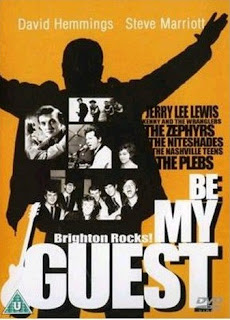James Tarry remembers a figure from the glory days of Soho.
A 1996
documentary on Jeremy Thorpe recently posted on Liberal England featured a blast from my past- a short interview with Dan Farson. He was captioned "Friend of Thorpe,” but most viewers would have had no idea who this man was.
There’s quite a bit on the internet about Dan, so no point me regurgitating stuff that’s already in the public domain. This is a bit about my experiences in the late 1980s and early 1990s of being with him in the Soho pub
The French.
The initial experience was of a colossally drunken man being incoherent in the bar. Most evenings. I wondered why he was so tolerated- most people who were that pissed were asked to leave.
The first inkling I had that he had any fame and repute was reading a Mail on Sunday and finding he was the art critic. The French had a fair few journos amongst the regulars, and I guessed he was an old mate of the co-owner, Noel Botham, hence why he could be that off-putting and still get served the next day.
As time went on, I learned more about the history of the man who could drink 10 gins in pretty quick succession - his life, his friends - how much he actually achieved and how much more, perhaps, he could have done.
We got to talking when he could talk, which was generally only at lunchtime. One spring day he’d just come up from Devon and spoke quite poetically about the journey up, the trees in blossom, the landscapes, the joy of the English spring.
By the time I left after lunch he was already pretty far gone. Lifting his G&T he said: “My father was an alcoholic- he hated it. I’m an alcoholic but I love it.”
Sometimes he gave me items to look after for fear of losing them, and I still have a few of them that I never got to give him back. A notebook filled with notes for a review of an exhibition, a copy of the screenplay of Love is The Devil, a photo of him and Francis Bacon.
I’ve got the edition of his autobiography Never a Normal Man he signed “To James the Hat from Dan the Rat, signed affectionately in the French House.”
I’ve still got
a photo-etching done by Alyson Hunter of me and Dan Farson, titled ‘One o’clock at the French House, 1998.
Sometimes I had to walk him the 200 or so yards from the pub to the hotel he used on Shaftsbury Avenue as he was beyond even that. He never spoke about Jeremy Thorpe in my presence other than to say they were friends.
How much he knew about the conspiracy we’ll never know, although he mentions it in the autobiography and included in the selection of his photos
the one he took of Jeremy under his first wife’s memorial, which is now in the National Portrait Gallery.
A couple of other vignettes spring to mind about those times. My best friend at the time, Darrell, looked almost identical to Tupac Shakur. He was a volatile chap, and I was worried about taking him to the French but did anyway, hoping he wouldn’t start a row.
Remarkably, he was disconcerted by the whole experience of walking in to be confronted by Dan, uncontrollably drunk, with the journalist
Sandy Fawkes next to him at the ‘deep end’ of the bar. Dan - always after a bit of rough (he ignored wannabe intellectuals and poetasters like me) -made some sort of advance.
“Why is that man barking like a dog?” asked Darrell. Turning round, “Why has that woman got a cat on her head?”
Stepping away from this strange scene he spilled the half of Guinness held by an Irish regular (whose name escapes me - I’m not sure I ever knew it).
The Irishman said ‘you’re a fecking slob, you are. £where you from? Catford?” Darrell asked to leave to go somewhere “normal”.
The other one was going to the French after a day at the cricket with a friend at the Oval. This chap, who I won’t name as he’s still alive, was a Bajan bodybuilder whose physique belied the fact he was actually very intelligent.
Wearing just a string vest and cut-off shorts, he was a magnet for Farson, who approached (again unintelligibly smashed) in a manner my friend quite understood.
Putting his arm around an attractive girl at the bar to demonstrate his allegiances, it all escalated when she couldn’t believe her luck and tried to snog him. (It seems no-one was ever sober in those days.)
This led to one of the two funny things I ever heard
Noel Botham say in the 20 or so years I went in there: “Put him down, lady. This is the French House, not the French Quarter.”
The other was when it was suggested a very drunk chap who wasn’t a regular could be sobered up with coffee. Noel said: “Give a drunk coffee and all you get is a wide-awake drunk.”
I guess I’ve strayed way away from the original brief, but these were entertaining times and certainly liberal ones in many ways, though a surprising number of those characters were Tories/ Noel was particularly reactionary.
More information about Dan’s life and times can be found in his books, including
Unimpeachable Sauces: The Gilded Gutter Life of Francis Bacon, and
the Indie’s obituary was pretty accurate by my reckoning.





















































